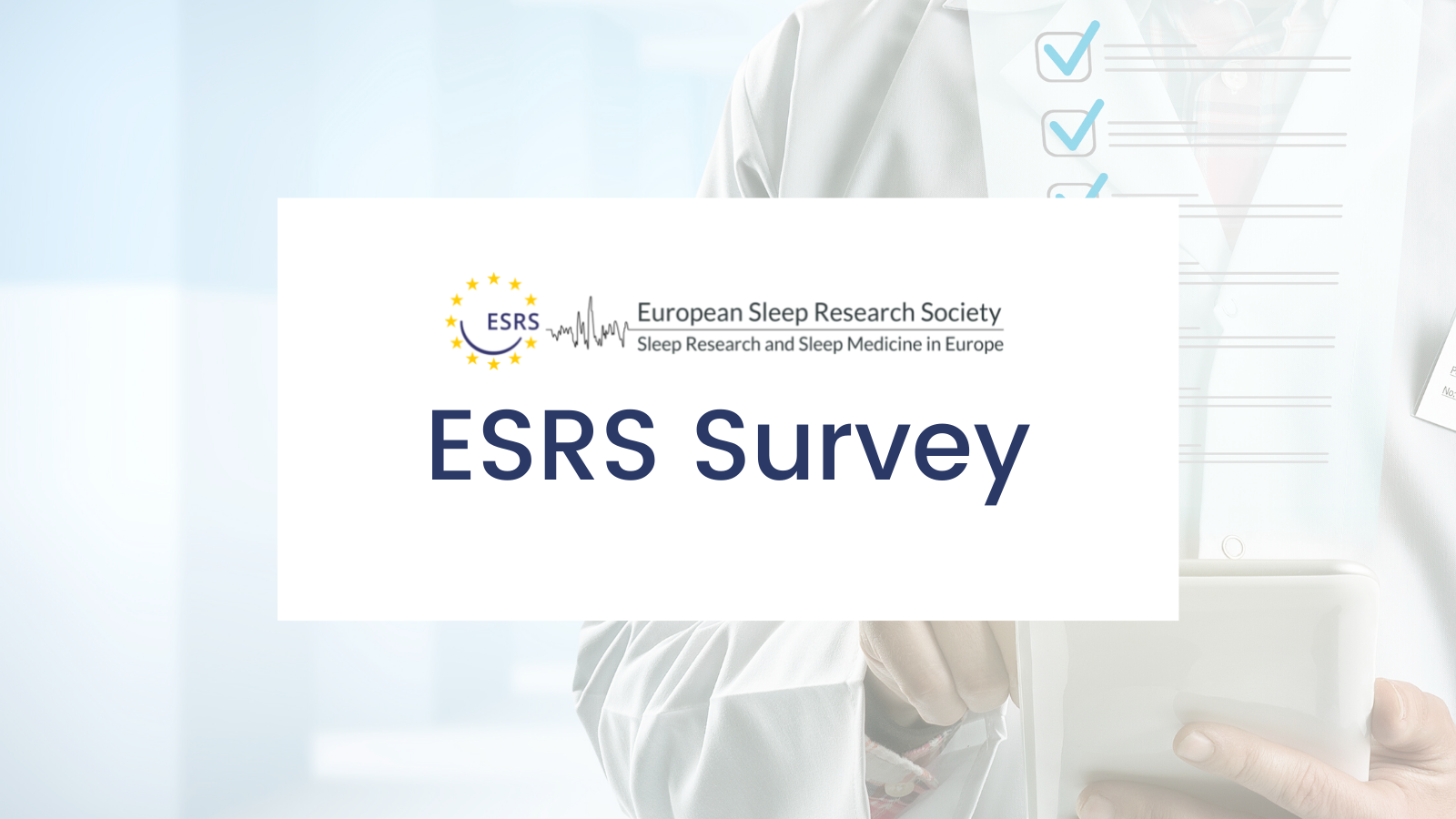Sleep Science Friday: ESRS Survey
27 August 2021
Membership is the very heart of the ESRS. As a society built by individuals, we strive to tailor our offerings to meet the needs of our members and the sleep science community. The sleep science community is vast, covering disciplines ranging from basic science, to neurology, pulmonology, psychiatry, paediatric medicine, and dentistry among others and countless sleep conditions and disorders. The ESRS aims to integrate all important European players within these fields, including individual researchers, National sleep societies, and patient organisations. This is no small task, and we are prepared to meet the challenge, but we also want to hear directly from you.
As you may have noticed, there have been several activities in the society recently. Sleep Science Friday itself is a relatively new initiative set up to inform members of news related to sleep science and celebrate the achievements of ESRS members.
Additionally, several committees have recently initiated open calls for new projects. Even though these calls have officially closed, if you’re interested in becoming a part of any ESRS committee, please feel free to reach out to the respective committee Chairperson – the doors to increased ESRS involvement are always open.
The ESRS office team has also grown, and with that growth came the launch of our first two webinars, and the modern facelift of our website homepage. There are several projects that are still in the works, so stay tuned for further announcements,
Possibly the largest achievement of this year has been the publication and distribution of the 2nd Edition of the Sleep Medicine textbook. None of this would have been possible without the active involvement of our members who serve as members of the Board, Committees, Networks and of course contributors, speakers and participants. ESRS extends our gratitude to all of our members for your commitment to the promotion and improvement of sleep research and sleep medicine.
ESRS Membership Needs
In spite of these major accomplishments so far in 2021, ESRS membership remains roughly the same. As we actively work on mapping out the future of the ESRS, its committees and networks, we want to know what the community wants. We want to hear from current and former members, newer members, NSS members and individuals at all career levels. If you work in sleep research or sleep medicine, we’d like to hear from you too.
As ESRS will celebrate its 50th anniversary next year, we are looking toward the future. We feel we can do better to serve our current members and reach a larger part of the sleep science community. To find out what our community needs, we have set up a survey and kindly ask you take a few minutes to answer this short questionnaire to help us understand your needs better.
We invite you to share this survey with your colleagues, via social media, email and word of mouth. The wider our reach, the more responses we can receive and the better we can prepare for meeting the present and future needs of the sleep community. Thank you for your help.
If this has inspired you and you are interested to take an active role in building the membership of ESRS and preparing for the next 50 years, contact Jennifer Thomsen to nominate yourself to join the soon to be formed Membership Committee.
ESRS Announcements
Sleep Europe 2022 Call for Symposia
We’d like to invite all members to contribute to the program by proposing a symposium. Submissions are now being accepted until 27 September 2021. Find out more on the criteria and procedures here.
Recent publications from ESRS members:
- Merikanto et al. (2021). Evening- types show highest increase of sleep and mental health problems during the COVID-19 pandemic – Multinational study on 19,267 adults. Sleep.
- Gustavsson & Wichniak (2021). Night work as a stressor: The role of sleep reactivity to stress in the relationship between night work and insomnia. J Sleep Res.
- Rodríguez-Alcalá et al. (2021). Sensorimotor tongue evaluation and rehabilitation in patients with sleep-disordered breathing: a novel approach. J Oral Rehabil.
- Panchin & Kovalzon (2021). Total wake: natural, pathological, and experimental limits to sleep reduction. Frontiers in Neuroscience.
- Kovalzon (2021). Serotonin, sleep and depression: a hypothesis. In: Olivier B., ed. Serotonin and the CNS – New Developments in Pharmacology and Therapeutics. IntechOpen: London, 2021.
- Battulin et al. (2021). Pannexin 1 transgenic mice: human diseases and sleep-wake function revision. Int. J. Mol. Sci.
- Georgopoulou et al. (2021). Altered Sleep-Related Consolidation and Neurocognitive Comorbidity in CECTS. Front Hum Neuroscience.
- Florea et al. (2021). Sleep during COVID-19 lockdown: A cross-cultural study investigating job system relevance. Biochem Pharmacol.
- Topalidis et al. (2021). Evaluation of a Low-Cost Commercial Actigraph and Its Potential Use in Detecting Cultural Variations in Physical Activity and Sleep. Sensors.
Just published an article? Want your research to be featured? Saw something interesting? Contact us at esrs@esrs.eu.



